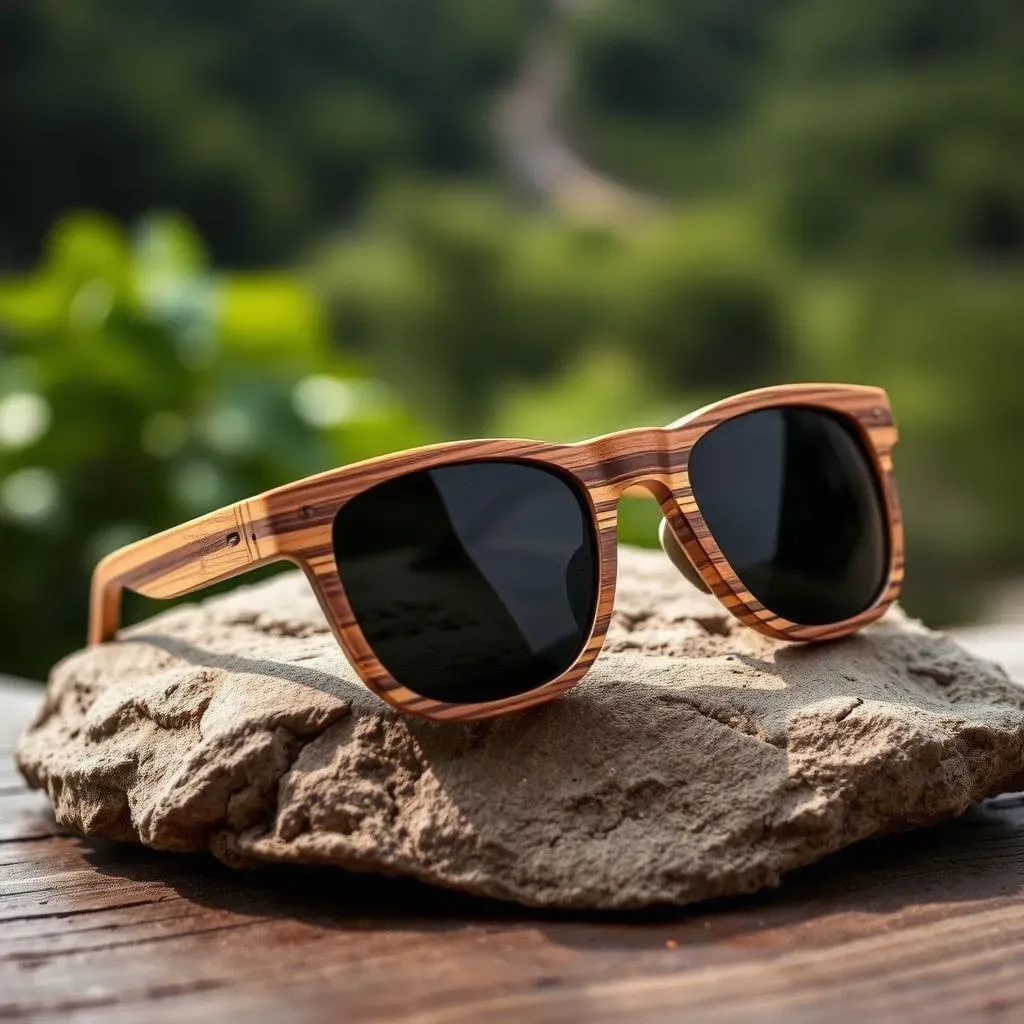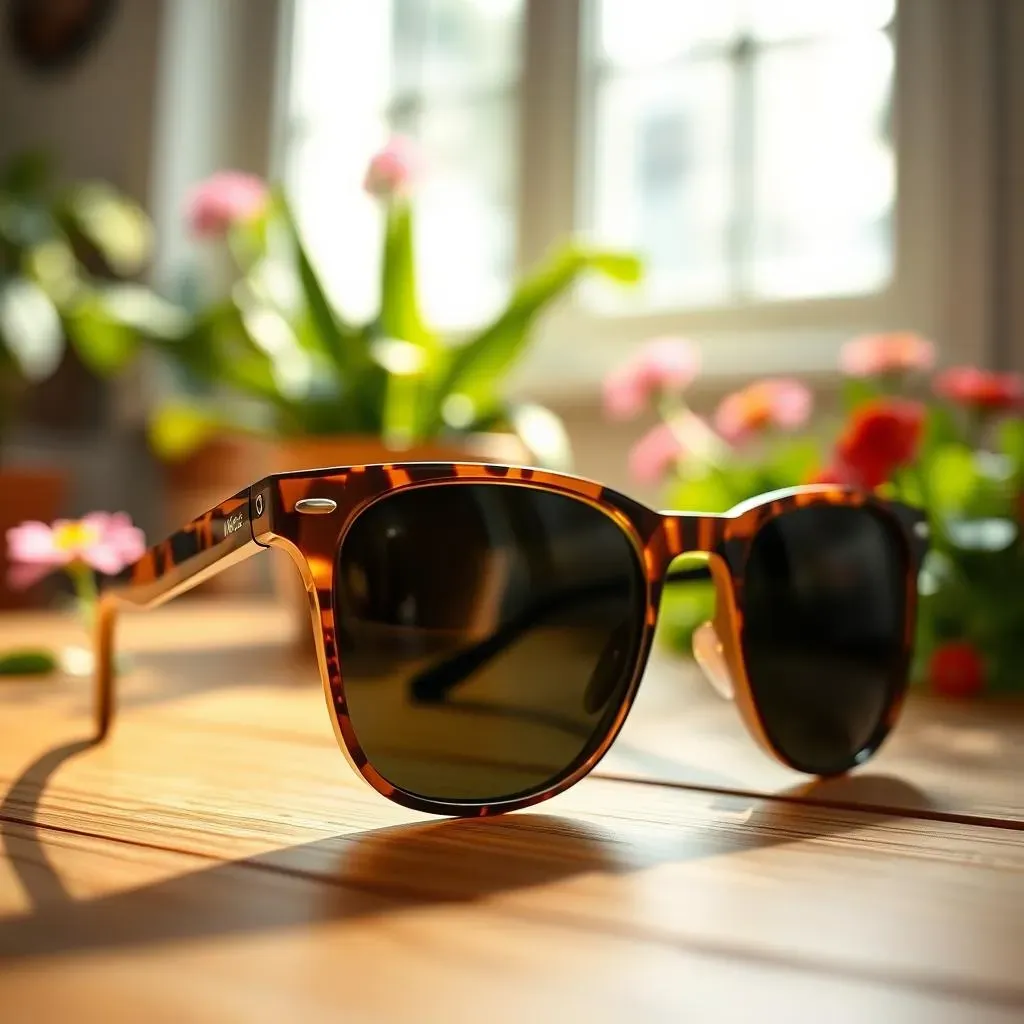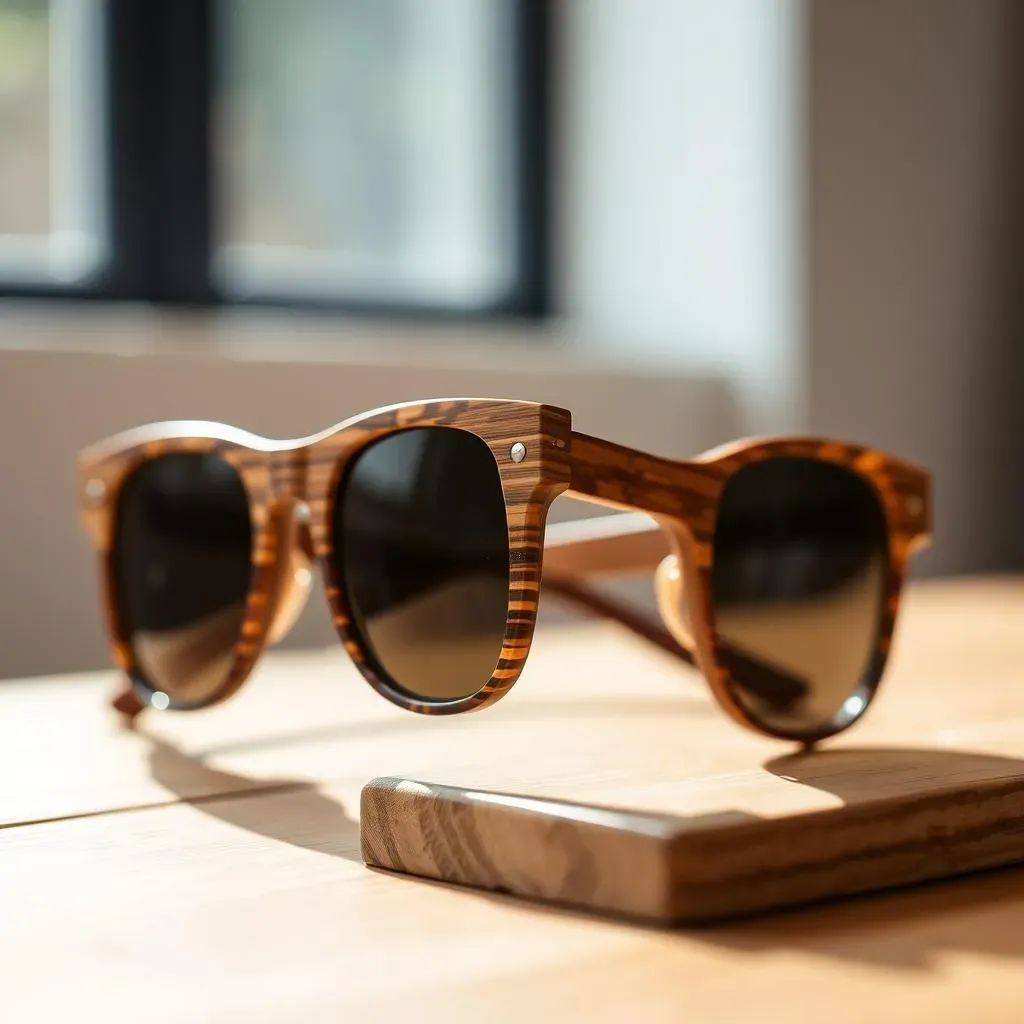Table of Contents
As consumers become increasingly aware of the environmental impact of their purchasing decisions, the demand for eco-friendly products has soared. The eyewear industry, in particular, has seen a significant shift towards sustainability, with many brands now offering eco-friendly sunglasses made from environmentally responsible materials. In this article, we'll delve into the world of eco-friendly sunglasses materials, exploring the innovative approaches being used to reduce waste and minimize the ecological footprint of eyewear. From recycled plastics to sustainable woods, we'll examine the key materials and brands that are leading the way in this movement. Whether you're a fashion enthusiast, an environmentalist, or simply someone looking to make a positive impact, this guide will introduce you to the latest developments in eco-friendly sunglasses materials and provide you with the knowledge to make informed, sustainable choices.
What Makes Sunglasses EcoFriendly: Exploring Sustainable Materials
What Makes Sunglasses EcoFriendly: Exploring Sustainable Materials
Introduction to Eco-Friendly Sunglasses Materials
Eco-friendly sunglasses are made from materials that minimize harm to the environment. These materials are sourced responsibly, produced with minimal waste, and designed to be recyclable or biodegradable. Some common eco-friendly materials used in sunglasses include recycled plastics, sustainable woods like bamboo or maple, and plant-based acetates.
Recycled plastics, for example, are collected from ocean waste or post-consumer plastic waste, reducing the amount of plastic that ends up in landfills and oceans. Sustainable woods are harvested from well-managed forests, ensuring that the environmental impact is minimized. Plant-based acetates are made from cotton linters or other natural fibers, providing a biodegradable alternative to traditional acetate.
Material | Source | Benefits |
|---|---|---|
Recycled Plastic | Ocean waste or post-consumer plastic | Reduces plastic waste, durable |
Sustainable Wood | Well-managed forests | Biodegradable, unique grain patterns |
Plant-Based Acetate | Cotton linters or natural fibers | Biodegradable, hypoallergenic |
- Reduces environmental impact
- Unique and stylish designs
- Durable and long-lasting
Benefits of Eco-Friendly Sunglasses Materials
Choosing eco-friendly sunglasses materials has numerous benefits, not only for the environment but also for the consumer. These materials are often more durable and long-lasting, reducing the need for frequent replacements. Additionally, eco-friendly sunglasses are often unique and stylish, making them a fashion statement that also promotes sustainability.
Moreover, eco-friendly sunglasses materials are better for the wearer's skin, as they are hypoallergenic and gentler on the skin compared to traditional materials. This makes them an excellent choice for individuals with sensitive skin or allergies.
Material | Durability | Hypoallergenic |
|---|---|---|
Recycled Plastic | Highly durable | Yes |
Sustainable Wood | Durable, but requires maintenance | Yes |
Plant-Based Acetate | Less durable than plastic, but biodegradable | Yes |
- Unique and stylish designs
- Promotes sustainability
- Better for sensitive skin
EcoFriendly Sunglasses Materials: A Guide to Wood, Bamboo, and Recycled Plastic
EcoFriendly Sunglasses Materials: A Guide to Wood, Bamboo, and Recycled Plastic
When it comes to eco-friendly sunglasses materials, wood, bamboo, and recycled plastic are three of the most popular and sustainable options. Wood sunglasses are made from a variety of trees, including bamboo, maple, and walnut. Bamboo is a highly renewable resource, with some species growing up to three feet per day. Maple and walnut are also sustainable options, as they are harvested from well-managed forests.
Recycled plastic sunglasses, on the other hand, are made from post-consumer plastic waste, such as old CDs, water bottles, and other plastic items. This type of material is not only eco-friendly but also durable and resistant to scratches and fading. Bamboo sunglasses are lightweight, flexible, and hypoallergenic, making them perfect for people with sensitive skin.
Material | Benefits | Sustainability |
|---|---|---|
Wood | Durable, unique grain patterns | Sustainably sourced from well-managed forests |
Bamboo | Lightweight, flexible, hypoallergenic | Highly renewable resource |
Recycled Plastic | Durable, resistant to scratches and fading | Reduces plastic waste |
- Unique and stylish designs
- Eco-friendly and sustainable
- Durable and long-lasting
Why Choose Wood, Bamboo, or Recycled Plastic?
Each of these materials has its own unique characteristics, making them suitable for different preferences and needs. Wood sunglasses are perfect for those who want a classic, timeless look. Bamboo sunglasses are ideal for individuals who prioritize comfort and flexibility. Recycled plastic sunglasses are great for those who want a durable and affordable option.
Ultimately, choosing eco-friendly sunglasses materials is not only good for the environment, but also for the consumer. By opting for sustainable materials, you are reducing your carbon footprint and supporting brands that prioritize the planet's well-being.
- Supports sustainable forestry practices
- Reduces plastic waste in oceans and landfills
- Promotes eco-friendly fashion
Sustainable Sunglasses Brands Leading the Way in EcoFriendly Eyewear
Sustainable Sunglasses Brands Leading the Way in EcoFriendly Eyewear
Eco-Friendly Brands Setting the Standard
As the demand for sustainable products continues to grow, several sunglasses brands have emerged as leaders in the eco-friendly eyewear market. These brands prioritize the use of environmentally responsible materials, reduce waste, and promote sustainable practices throughout their production processes. One such brand is Proof Eyewear, which uses FSC-certified wood and recycled plastics to create stylish and durable sunglasses. Another notable brand is Sea2See, which crafts sunglasses from recycled marine plastic and fishing nets, helping to reduce ocean pollution.
Other brands, like Eco Eyewear and Pela, offer a wide range of sustainable sunglasses made from recycled materials, plant-based acetates, and bioplastics. These brands not only reduce waste but also contribute to reforestation efforts and support environmental organizations. By choosing these brands, consumers can enjoy high-quality, fashionable sunglasses while supporting a more sustainable future.
Brand | Materials | Unique Features |
|---|---|---|
Proof Eyewear | FSC-certified wood, recycled plastics | Polarized lenses, UVA/UVB 400 protection |
Sea2See | Recycled marine plastic, fishing nets | Stylish designs, contributing to ocean conservation |
Eco Eyewear | Recycled materials, plant-based acetates | Wide range of styles, B Corp certification |
- High-quality, durable sunglasses
- Sustainable materials reducing waste
- Supporting environmental organizations
What Sets These Brands Apart
What distinguishes these eco-friendly sunglasses brands is their commitment to sustainability beyond just the materials used. Many of these brands have implemented environmentally responsible practices throughout their entire supply chain, from sourcing to packaging. For example, some brands use biodegradable packaging, while others plant trees for every pair sold or donate to environmental causes.
Additionally, these brands often collaborate with influencers, activists, and organizations to raise awareness about the importance of sustainability in the fashion industry. By promoting eco-friendly sunglasses, they inspire consumers to make more conscious purchasing decisions and contribute to a reduction in waste and pollution.
Brand | Sustainability Initiatives | Environmental Impact |
|---|---|---|
Pela | Planting trees for every pair sold | Carbon offsetting, reducing waste |
Eco Eyewear | Biodegradable packaging, recycled materials | Reducing plastic waste, promoting sustainability |
Sea2See | Removing marine plastic, supporting ocean conservation | Reducing ocean pollution, promoting eco-friendly practices |
- Environmentally responsible practices
- Collaborations with environmental organizations
- Raising awareness about sustainability in fashion
Why Choose EcoFriendly Sunglasses: The Impact of Sustainable Fashion on the Environment
Why Choose EcoFriendly Sunglasses: The Impact of Sustainable Fashion on the Environment
The Environmental Impact of Traditional Sunglasses
The fashion industry, including eyewear, has long been criticized for its significant environmental footprint. Traditional sunglasses are often made from non-biodegradable plastics, which contribute to the staggering amount of plastic waste in our oceans and landfills. According to the United Nations, over 8 million tons of plastic waste enter the world's oceans every year, harming marine life and contaminating the food chain.
In addition to the environmental harm caused by plastic waste, the production of traditional sunglasses also has a significant carbon footprint. The extraction, processing, and transportation of raw materials required for sunglasses manufacturing lead to greenhouse gas emissions, contributing to climate change.
Material | Environmental Impact | Sustainable Alternative |
|---|---|---|
Plastic | Contributes to ocean pollution and landfill waste | Recycled plastic, bioplastics |
Acetate | Derived from non-renewable resources, non-biodegradable | Plant-based acetates, biodegradable |
- Reduces plastic waste
- Minimizes carbon footprint
- Promotes sustainable fashion
The Benefits of Sustainable Sunglasses
Choosing eco-friendly sunglasses is an effective way to reduce your environmental footprint while also making a fashion statement. Sustainable sunglasses are made from materials that minimize harm to the environment, such as recycled plastics, sustainable woods, and plant-based acetates.
By opting for eco-friendly sunglasses, you are supporting brands that prioritize sustainability and reducing the demand for non-biodegradable materials. This, in turn, promotes a more circular economy where materials are reused and recycled, decreasing waste and the continuous consumption of natural resources.
Brand | Eco-Friendly Features | Environmental Impact |
|---|---|---|
Proof Eyewear | FSC-certified wood, recycled plastics | Supports reforestation, reduces plastic waste |
Sea2See | Recycled marine plastic, fishing nets | Removes ocean waste, promotes conservation |
- Supports sustainable forestry practices
- Reduces ocean pollution
- Promotes eco-friendly fashion
Embracing a Sustainable Future with Eco-Friendly Sunglasses
In conclusion, the shift towards eco-friendly sunglasses materials is not only a stylish trend, but a necessary step towards reducing our impact on the planet. By choosing sunglasses made from sustainable materials such as recycled plastics, bamboo, and wood, consumers can significantly decrease their carbon footprint. As we've explored in this article, numerous brands are leading the way in eco-friendly eyewear, offering a wide range of stylish and durable options. Join the movement towards a greener future by opting for eco-friendly sunglasses materials. Visit sunglasshub.org to explore more sustainable eyewear options and discover how you can make a positive difference with your fashion choices. Together, we can create a more environmentally conscious world, one pair of sunglasses at a time.
